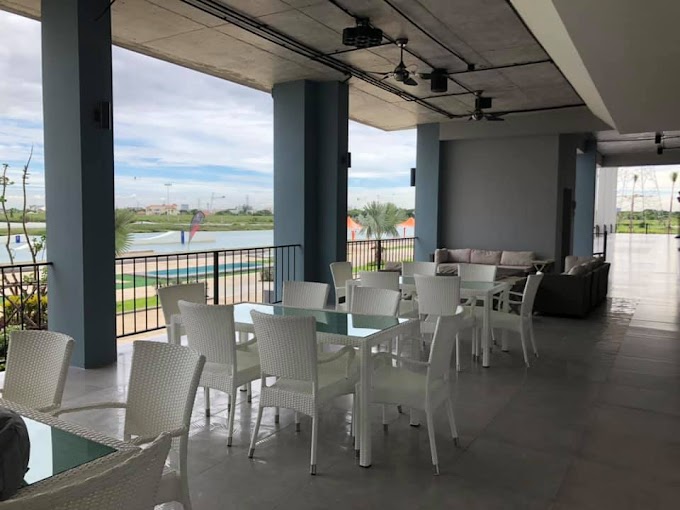Countries and their Parliaments Names and details for General Knowledge (Part-4)
Welcome to our 4th part of series ‘Countries and their Parliaments Names and details for General Knowledge’. We already finished 60 Countries and their
Parliament name and details in first 3 parts. It is the 4th part of
our series.
Find
the countries Parliament name and about it in below: - (Part-4)
61- Haiti – Haitian Parliament
The Parliament of Haiti known as Haitian Parliament is a bicameral legislature of the Republic of Haiti. The meeting area is located at Port-Au-Prince, the capital and most
populous city of Haiti. HaitianParliament consists of 2
chamber, Upper House as the Senate
and Lower House as the Chamber of
deputies.
The Senate consists of thirty
seats, with three members from every of the ten administrative departments.
Prior to the creation of the department of Nippes
in 2003, there have been twenty-seven
seats. Senators are elected by
popular vote to s 6year terms, with 1/3 elected each 2 years.
The NationalAssembly is a Joint session of Parliament. The NationalAssembly
is convened for specific purposes for the Constitution.
Meetings of the National Assembly are presided over by the President of the Senate, with the President of the ChamberofDeputies
assisting. The Secretaries of the Senate
and the ChamberofDeputies also
function as Secretaries of the NationalAssembly.
62- Hong Kong – Legislative Council
of Hong Kong
The Parliament of Hong Kong known as Legislative
Council of Hong Kong special administration region (LegCo). It is a
unicameral legislature of
the Hong Kong Special
Administrative Region of the People's Republic of China.
The legislature is a body currently comprising
seventy members, thirty five of whom are directly elected through five geographical constituencies under the proportional representation system with largest remainder method and Hare quota,
while the other thirty five are indirectly
electoral through group based functional
constituencies.
63- Hungary –
National Assembly
The Parliament
of Hungary is known as National assembly. National Assembly is
the unicameral legislative body of HungarianParliament.
Nationalassembly is situated at LajosKossuth Square, Budapest.
National
assembly consists of 199 members electoral to 4-year terms. Election
of members is completed for parallel voting; involving single-member districts and one list election. Parties should win
at minimum 5% of the popular vote in
order to enter the list of members of the assembly. The Assembly includes 25 standing committees to discussion and report
on introduced bills and to supervise the activities of the ministers. The Constitutional Court of Hungary has the proper to challenge legislation on the grounds of constitutionality.
64- Iceland –
Althing
The National Parliament of Iceland is known
as Althing. It is the oldest extant parliament in the world. Althing is a unicameral legislature of Iceland. The Althing was
founded in 930 situated in the country’s capital and largest city Reykjavik.
The
constitution of Iceland provides for 6electoral
constituencies with the possibility of a rise to 7. The constitution body
boundaries and the number of seats allotted to every constituency are fixed by legislation. No legislativebody can be represented by fewer than 7 seats.
65-
India –BharatiyaSansad / Parliament
The Parliament
of India known as BharatiyaSansad is
that the supreme legislative body of the Republic of India. It is a bicameral legislature composed of the President of India and the two houses the RajyaSabha
or Council of States (Upper House)
and the LokSabha or House of the People (Lower House). SansadBhavan, situated at Capital and
most famous city of India, New Delhi.
Those appointed
to either house of Parliament are referred to as Members of Parliament. The
Members of Parliament LokSabha are
directly elected by the Indian
public voting in district and zone wise and the Members of Parliament, RajyaSabha are elected by the members
of all State Assembly by representation. The Parliament has a sanctioned
strength of 543 inLokSabha and 245
in RajyaSabha and 12 nominees from
the expertise of different fields of science, culture, art and history
appointed by the PresidentofIndia.
66-
Indonesia – Peoples Representative Council
The People's Representative Council of the Republic of Indonesia is one amongst 2 elective national legislative assemblies
in Indonesia. Alongside the DewanPerwakilanDaerah, a second chamber
with some limited powers, it makes up a legislative body, the MajelisPermusyawaratanRakyat.
The members of DPR are elective through the General election, once every 5 years.
Currently, there are 575 house members.
The house has been the subject of
frequent public criticism by perceived high levels of fraud and corruption.
67- Iran – Islamic Consultancy
Assembly (Majilis)
The IslamicConsultancyAssembly is also called as the Iranian Parliament or the IranianMajilis is the national
legislative body of Iran. The Parliament presently has 290
representatives, changed from the previous 272 seats since the eighteen
February 2000 election. The foremost election occurred on 21 February 2020 and
the new parliament was opened on 28
May 2020. The Parliament of Iran meets at the capital and largest city Tehran.
The IslamicConsultativeAssembly can make laws on all issues within the
limits of the Constitution. The Assembly cannot, as an example enact laws
contrary to the canons and
principles of the official religion of the country to the Constitution.
Government bills are presented to the
Islamic Consultative Assembly after receiving the approval of the Council of Ministers.
68- Iraq – Council of Representative
The Parliament of Iraq is known as the Council of Representative. It's a unicameral legislature of the
republic of Iraq. There is 329 seats
in Iraq Parliament as of 2020. Council of Representative of Iraq meets at Baghdad, the capital city and 2nd largest city of Arab.
The politics of Iraq ensue during a framework of a federal parliamentary
representative democratic republic. It's a multi-party system whereby the
manage power is exercised by the Prime Minister
of the Council of Ministers as the head of government, as well as the President of Iraq.
69- Ireland - Oireachtas
The Parliament
of Ireland is named as Oireachtas.It is a bicameral
legislature of the Republic of Ireland. The Oireachtas consists of the President
of Ireland and the two houses of the Oireachtas known as SeanadÉireann
(upper house) and DáilÉireann (lower
house). The houses of the Oireachtas
meets in LeinsterHouse in Dublin, the largest and the capital
city of Ireland. The Parliament of Ireland is an eighteenth-century ducal
palace.
The Dáil
has One hundred sixty members. The Seanad
is not directly elected but consists of a mixture of members selected in a
number of different ways. Fortythreesenators
are elected by councillors and
parliamentarians, 11 are appointed by the Taoiseach,
and six are elected by two university constituencies, having sixty members in total.
70-
Isreal - Knesset
The Parliament
of Israel known as Knesset. The Parliament of Israel is the supreme unicameral national general assembly of
Israel. The Knesset is located at GivatRam,
WestJerusalem, Israel. As the Supreme
legislature of Israel, the Knesset
is sovereign and thus has complete control of the entirety of the Israeli government. The Knesset passes all laws, elects the President and Prime minister, approves the cabinet, and supervises the work of
the government, among other things. In addition, the Knesset elects the state comptroller.
71- Italy – The Parliament of Italy
The Parliament
of Italy or ItalianParliament is the national Parliament of the Italian Republic. The Parliament of Italy is a bicameral
legislature of the Italian Republic.The
Parliament of Italy have 945 elected
members and a small number of unelected members.
By the
constitution of Italy there is 2 Houses, the Senate and the ChamberofDeputies.
The Senate consists 315 members and the Chamber of Deputies consists 630 members. The main prerogative of
Parliament is the exercise of the legislative power that is the power to enact laws. For a bill to become
law, it must receive the support of eachhousesindependently
in the same text.
72- Jamaica – Jamaican Parliament
The Parliament
of Jamaica is the legislative branch
of the government of Jamaica. It
consists of three elements: The Crown,
the appointed Senate and the
directly elected House of Representatives. The Parliament of Jamaica is a bicameral general assembly
of Jamaica.
The Senate (Upper House) is that the direct
successor of a pre-Independence body referred to as the Legislative Council consists Twenty
one senators appointed by the Governor-General thirteen on the recommendation of the Prime Minister of Jamaica
and 8 on the recommendation of the Leader of Opposition.
The House of Representatives (Lower House),
is created of 63 Members of Parliament,
elected to five-year terms on basis in single-seat
constituencies.
The Parliament
meets at Gordon House at 81 Duke Street in Kingston
the largest and capital city of Jamaica.
73- Japan – National Diet
The Parliament
of Japan known as NationalDiet. National diet is a unicameral legislature body of the Republic of Japan. The Parliament of Japan
is meets at National Diet building, in
Chiyod District, Tokyo.
The Parliament
of Japan consists 2 houses, The House of Representatives (Lower
House) and the House of councillors
(Upper House). Each houses are directly elected under a parallel voting system. In addition to passing laws, the Diet is formally responsible for selecting the Prime Minister.The
houses of the Diet are both elected under parallel voting systems. This means
that the seats to be filled in any given election are divided into two groups, each elected by a different
method; the main difference between the houses
is in the sizes of the two groups
and how they are elected.
74- Jordan – The Parliament of Jordan
The Parliament
of Jordan is the bicameral JordanianNationalAssembly, established by
1952 constitution. The Parliament of Jordan
is situated at Al-Abdali, Amman the largest and the capital city
of Jordan.
The legislature
of Jordan consists of 2 houses, The
Senate and the House of Representative. There is 65 members in Senate.
The members of Senate is directly selected by the King of Jordan.
The House of
Representative has 130 elected member. In this 130 member nine seats reserved
for Christians three are for Circassian minorities, and fifteen for women. Both house members are elected for a 4 year term.
75- Kazakhstan – The Parliament of Kazakhstan
The Parliament
of the Republic of Kazakhstan is the bicameral legislature of Kazakhstan,
founded in 1996. The Parliament of Kazakhstan
is situated at House of Parliament in Nur-Sultan,
the capital and largest city of the Kazakhstan.
The legislature
of Jordan consists of 2 houses, the lower house is the Mazhilis,
with 107 seats, which are elected to five-year
terms. The upper house is the Senate, which has 47 members. As of January 2007, 10% of
the parliament's representatives are women and 19% of local and city council officials are women. Its predecessor
was the SupremeCouncil of Kazakhstan
76- Kenya - Parliament of
Kenya
The Parliament of Kenya is the bicameral legislature of Kenya. The
Parliament of Kenya is situated at Parliament Building in Nairobi,
capital and the largest city of Kenya.
The Parliament of Kenya consists of two Houses, The Senate
(Upper House) and therefore the National Assembly (Lower House).
The Senate that consisted of forty one senators elected for
6 years, with 1/3 of the members retiring each 2 years.
The National assembly has a total of 349 seats: 290 elected from
the constituencies, 47 women elected from the counties and 12 nominated
representatives. The Speaker of the National Assembly of Kenya
serves is associate ex officio member.
77-
North Korea – Supreme People’s Assembly
The Parliament
of North Korea known as Supreme People’s assembly. The Supreme People’s assembly is the
unicameral legislature of the Democratic
People's Republic of Korea, commonly
known as NorthKorea. The Parliament
of NorthKorea is situated at Pyongyang, the capital and largest city
of NorthKorea.
It consists of 1 deputy from every of the DPRK's 687 constituencies, elective to five-year terms. The constitution
identifies the SPA because the
"highest organ of state power" and every state positions, as well as
theSupreme Leader, trace their
authority to it.
78-
South Korea – National Assembly
The Parliament
of South Korea is known as National Assembly. National Assembly is a unicameral body of national legislature of SouthKorea. The National assembly
building is situated at Seoul, the
capital and largest metropolis city of South
Korea.
The
National Assembly has 300 seats, with 253 constituency seats and 47
proportional representation seats; 30 of the PR seats are assigned on
additional member system, while 17 PR seats use the parallel voting method. The
members of The National Assembly selected for a 4 year term.
79- Kuwait – National Assembly
The Parliament
of Kuwait is known as National Assembly. National Assembly is a unicameral body of national legislature of Kuwait. The National assembly building
is situated at KuwaitCity, the
capital and largest city of Kuwait.
The National Assembly will have up
to fifty Member of Parliaments. Fifty deputies are elected by one
non-transferable vote to serve 4 year terms. Members of the cabinet also sit in
the parliament as deputies. The constitution limits the scale of the cabinet to sixteen. The cabinetministers
have the same rights as the elected MPs.
80- Kyrgyzstan - JogorkuKenesh /
Supreme Council
The Parliament
of Kyrgyzstan is known as JogorkuKenesh or Supreme Council.
National Assembly is a unicameral body of national legislature of the Kyrgyz
Republic. The JogorkuKenesh building
is situated at Bishkek City, the
capital and largest city of Kyrgyzstan.
JogorkuKenesh was known as
the Supreme Soviet of the Kirghiz Soviet Socialist Republic until
1991.
The parliament has 120 seats with members elected for a five-year term by party-list proportional voting.
Must Read- Countries and their Parliaments Names and details for General Knowledge (Part-1)
Haiti, Hong Kong, Hungary, Iceland, India, Indonesia,
Iran, Iraq, Ireland, Isreal, Italy, Jamaica,
Japan, Jordan, Kazakhstan, Kenya, North Korea, South Korea,
Kuwait, Kyrgyzstan,





































